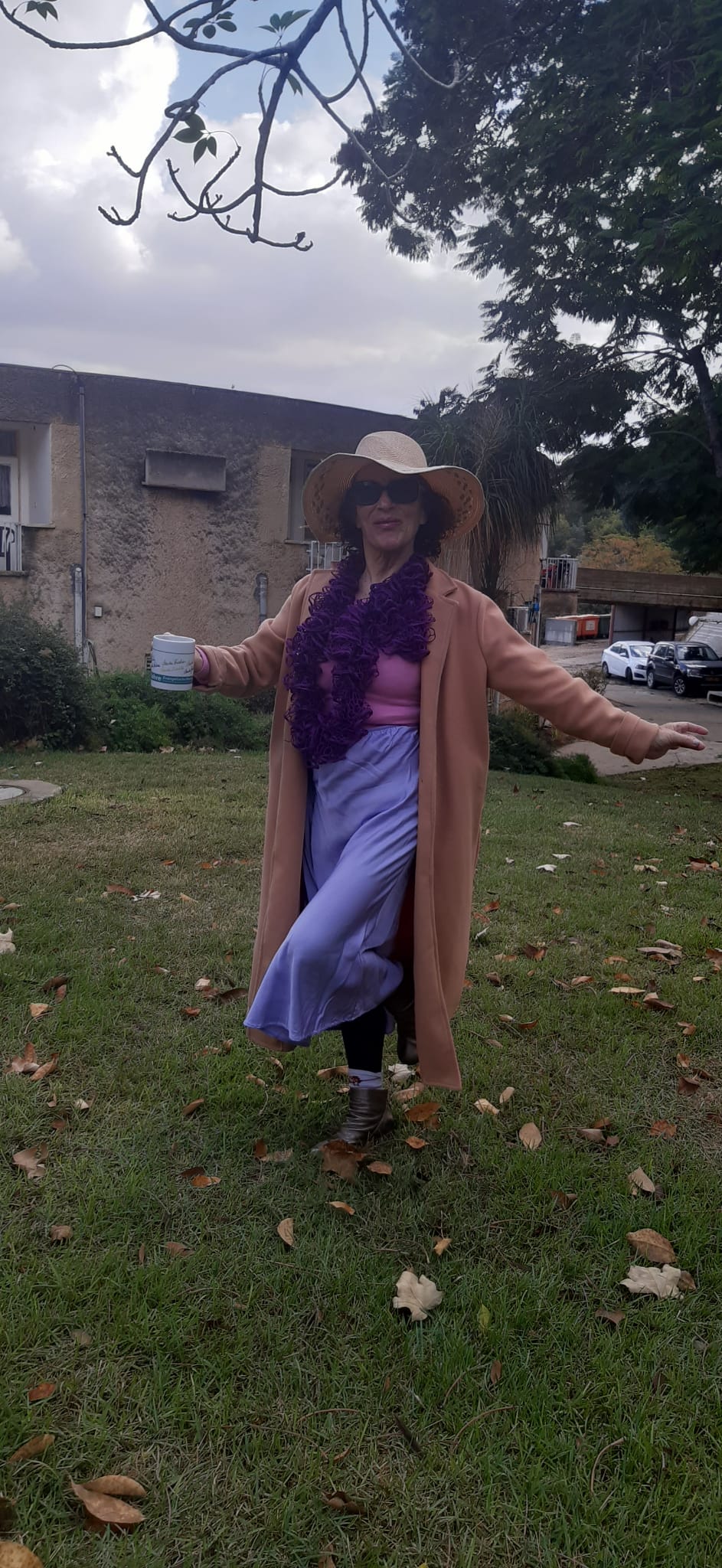Semrik: If there's one image, you'd want viewers around the world to hold close to their hearts during these days, what would it be for you?
Shatil: It's terribly easy for an individual to define themselves through their immediate needs, frustrations, hunger, and despair—especially when opening their eyes. It requires an immense effort, culturally, educationally, and programmatically, as I call it—to endow high qualities to human intelligence so that we wake up in the morning to our highest mountain, to the identity of love, belief, and the ability to create ourselves exactly as the person we want to be. Not to see something that frustrates and diminishes us, but something that arouses the possibility for us to ascend higher in identity, in the experience of value, and ultimately in the quality of life and happiness. That's precisely the model of the human individual, and it's precisely the model of human togetherness. I believe that every group and every social organization is created primarily to express the highest qualities of humanity. There's no need to allow our primitive brain, our animalistic nature, to govern us. The world has opened its eyes to the force of power. The world sees the limits of power. We're also in the midst of a power struggle. The fracture of the answers we can receive through power. We also see the shortcomings of wealth, and in my opinion, on the sorrowful and tearful side, we can take that as a lever. An opportunity to identify sources of survival, vitality, and abundance that are more relevant, more potent, and more fruitful when more effort is put into it. As I, in my advanced age, suddenly see that my happiness quotient rises as I transcend my own impulses and bring a loving, believing, and artistic value management, so I wish this for every nation, every religion, every culture. Humans created their culture to fulfill their beauty, not to once again draw from sources that belong to the world of nature, to a world without human wonder, a world without the divine that humanity produced from its heart. I call on all nations to bring an international perspective that bridges us in trust, beauty, greatness, and our human evolution.
Semrik: When you call on communities and society to understand that there's a fracture of power, what do you mean precisely in the practice of life?
Shatil: Humans are meant to love life. Human nature is tenderness, softness, and compassion. That's the nature. That's the space for living that suits human. Humans do not show an ability to adapt, to lead daily lives as warriors. They are not capable. We are not Spartans. And maybe even Sparta is not Sparta, and the fact is irrelevant. Humans cannot build their existential security, their essence, their existence based on military superiority. It won't come to mind. Somewhere there will always be failure because it contradicts human nature. We can talk about the specific failures that led to the terrible disaster currently gnawing at the soul of our Israeli, Jewish, and human existence. We can and should. But it's important to bring understanding beyond that, deep, fundamental understanding. Human nature is not a nature of survival. It's a nature of art, culture, and spiritual development. It's a living space that brings abundance, health, freedom from diseases, and freedom to be happy—whether on the individual-human level or, of course, on the international level, which is, of course, also relationships between people and hearts.
To watch the full interview from Contento Now's studio and the kibbutz: Link to the YouTube video.
Media Contact
Company Name: ContentoNow
Contact Person: Netanel Semrik
Email: Send Email
Phone: +972546603761
Address:Romanili 38
City: Tel Aviv
Country: Israel
Website: https://www.kef-kochavim.com/







